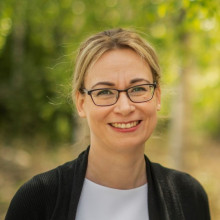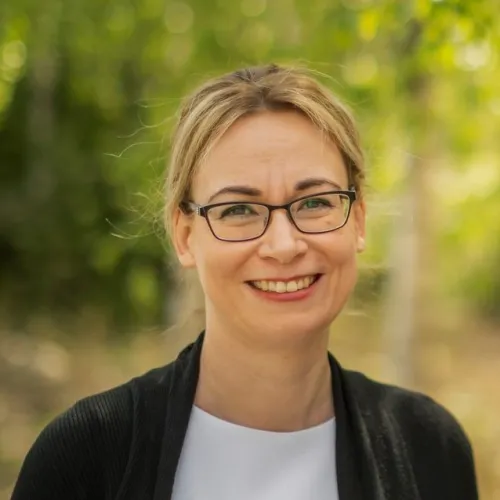Finland is in growing need of highly educated professionals who can tackle complex global challenges. Doctoral education plays a key role in preparing individuals not only for academic research but also for careers in industry and public service. These advanced skills are essential for developing innovative solutions to issues such as climate change and technological advancement.
Netta Tiippana, coordinator of the Doctoral School at LUT University, and Mari Kallioinen-Mänttäri, who was recently appointed LUT University’s provost, share insights into what it’s like to pursue a doctoral degree and the opportunities it can unlock.
How can I apply for doctoral studies?
To apply for a doctoral program, you need a master’s degree in a field relevant to your intended research topic. Since this is a degree-granting program, applicants must also be eligible for postgraduate studies at LUT. This eligibility can be obtained either through a direct application or by being hired as a junior researcher — an arrangement where the individual is both an employee and a student.
“In addition to a suitable academic background, applicants must be committed to completing the degree and possess the initiative and perseverance needed for the multi-phase process of writing a dissertation,” Tiippana explains. “A strong alignment between the student’s research interests and those of their supervisor, especially in line with the university’s strategic focus, is crucial in the selection process.”
How long does it take to complete doctoral studies?
Doctoral studies can typically be completed in three to four years when pursued full-time as a junior researcher. In this role, the doctoral candidate conducts research and writes their dissertation as part of their job. Part-time study is also possible, either alongside other work or with the support of a grant, though timelines of these cases can vary.
“Research demands persistence, the ability to handle uncertainty, and a genuine curiosity,” says Tiippana. “Scientific progress can be slow, and research questions often evolve. Since most publications are in English, strong communication skills — both written and oral — are essential, as are networking abilities.”
What support does LUT offer for doctoral studies?
Doctoral candidates at LUT receive guidance from experienced supervisors and have access to courses that build essential professional skills, such as communication and public speaking.
“We’re continuously developing our doctoral education to help students succeed in their careers,” says Kallioinen-Mänttäri. “One example is the Doctoral School conference we are organising in May, which allows us to support networking across disciplines. We have also expanded training in areas such as patenting, funding applications, and entrepreneurship.”

Why is doctoral education important for Finnish society?
Kallioinen-Mänttäri emphasises the societal value of doctoral education: “We need experts who can create science-based solutions. Science underpins decision-making, innovation, and sustainable development. Doctoral graduates are equipped to understand both the finer details and the broader context.”
"Doctoral education fosters critical thinking, persuasive communication, and the ability to work in international networks — skills that are valuable not only in academia but also in government, business, and beyond."
What career paths are open to doctoral graduates?
A doctoral degree opens doors to a wide range of careers, including research, product development, expert roles, and leadership positions. Many doctoral graduates also work in government ministries, administration, or in the RDI (research, development, and innovation) sectors of companies.
“It’s important to remember that your dissertation topic doesn’t define your entire career,” Kallioinen-Mänttäri notes. “The broader skills you gain — like independent thinking, problem-solving, and project management — can lead to diverse opportunities.”
The Curious People newsletter shares our solutions for helping build resilient communities, industry, and businesses while promoting the energy transition and the regenerative use of natural resources.
How international is doctoral education at LUT?
LUT’s doctoral programs are highly international. Researchers from dozens of countries work on campus, and English is the primary language of research and instruction. LUT wants to ensure that information is easily shared internationally.
“Doctoral candidates begin building international networks during their studies,” says Kallioinen-Mänttäri. “Many value the chance to share experiences with peers from around the world, and these connections often lead to lasting collaborations and friendships.”
What is the doctoral education pilot, and how does it show at LUT right now?
The doctoral education pilot is a national initiative launched by the Finnish government to reform researcher education. Its goals include increasing the number of doctoral graduates, creating more flexible study paths, and strengthening the connection between academia and working life.
The pilot also aims to improve degree processes and guidance, and to better integrate doctoral studies with earlier education, such as completing a master’s degree during the doctoral journey.
“LUT is participating in seven national pilot programs, through which we’ve already recruited 44 new doctoral researchers for 2024–2027,” Tiippana says. “But the improvements we’re making benefit all our doctoral students, not just those in the pilot.”
More information:

Mari Kallioinen-Mänttäri






